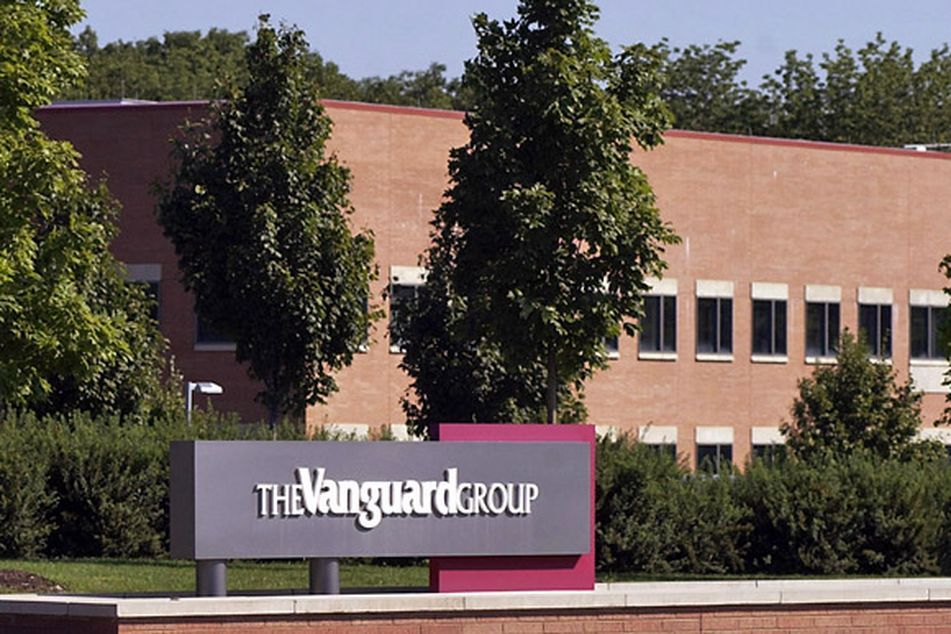Vanguard’s fee-light emerging-markets ETF passing rivals

Inflows into firm's low-fee fund have surged; 'pricing war going on'
Vanguard Emerging Market ETF became the third-largest U.S. exchange-traded fund this week, surpassing a rival BlackRock Inc. fund that just a year ago was twice as big, and adding to evidence that investors are migrating to the cheapest offerings.
The Vanguard fund had $46.2 billion as of yesterday, more than the $46 billion in iShares MSCI Emerging Markets, according to data compiled by Bloomberg. At the end of 2009, the BlackRock fund was twice as large as Vanguard’s, according to Chicago- based Morningstar Inc.
“There is a pricing war going on,” Paul Justice, director of ETF research at Morningstar said in a telephone interview. “Investors see these as commodities and are saying, ‘Why not go for the one with the lowest expense.’ ”
Vanguard has captured market share in the almost $1 trillion U.S. market for ETFs by using the same low-price strategy it employed to become the nation’s largest mutual-fund firm. Vanguard’s emerging market ETF charges a fee of 27 cents per $100 invested, compared with 69 cents for its BlackRock rival.
Vanguard’s competitors may be forced to cut prices on certain products, said Dave Nadig, director of research at Index Universe, a San Francisco-based financial media company.
“BlackRock must be wringing its hands,” he said in a telephone interview.
The two emerging-market ETFs ranked third and fourth in asset size as of Dec. 31, according to State Street Corp. The biggest ETF was the $90 billion SPDR S&P 500 ETF Trust sold by State Street.
Blame It On Rio
While both emerging-markets funds attempt to track the same index, the MSCI Emerging Markets Index, their results have not been identical. Since U.S. stocks reached a 12-year low March 9, 2009, the Vanguard ETF returned 151 percent compared with 137 percent for the BlackRock fund, data compiled by Bloomberg show. The index returned 150 percent.
Because emerging-market stocks are not always easy to buy, it can difficult to duplicate the performance of the underlying index, said Paul Justice from Morningstar.
“The iShares MSCI Emerging Markets Fund has an excellent track record since its inception and a large base of investors who value its deep liquidity,” Jennifer Grancio, head of iShares U.S. distribution at BlackRock, said in an e-mailed statement.
The firm has seen clients allocating money to country ETFs including its Brazil, Korea and Taiwan funds, as well as to domestic funds, said Christine Hudacko, a spokeswoman for BlackRock.
Pure Plays
“Our suite of emerging market offerings, the largest in the ETF industry at $87 billion, has seen increasing flows into single-country funds, as investors become selective about their emerging market exposure,” Grancio said. “This is a theme our investment strategists and others advocate as investors look to capitalize on the growth in emerging markets.”
ETFs trade throughout the day like stocks and usually mimic indexes. Investors added $111 billion to U.S. ETFs last year, which pushed assets at yearend to $995 billion, according to Boston-based State Street.
BlackRock, based in New York, jumped into ETFs with its $15.2 billion acquisition of Barclays Global Investors in December 2009, which added the iShares funds. The world’s largest money manager, BlackRock had $3.45 trillion in assets under management as of Sept. 30.
The firm had $450 billion in U.S. domiciled ETFs at the end of 2010, the most of any company, according to data compiled by State Street. State Street was second with $235 billion; Vanguard was third with $148 billion.
Fee Wars
Vanguard was initially reluctant to offer ETFs. Founder John Bogle criticized the product for encouraging short-term investing. In 2001, Vanguard introduced the Total Stock Market ETF, their first such product. Vanguard ETFs are separate classes of the firm’s index mutual funds, a structure the company has patented.
Vanguard had $1.38 trillion in mutual-fund assets at the end of November, more than any other company, according to data from the Investment Company Institute, a Washington-based trade group. Investors added $40.3 billion to its ETFs last year, compared with $29.3 billion for BlackRock and $16.3 billion for State Street, according to State Street data.
Vanguard’s emerging-market ETF collected $19.3 billion in deposits in 2010, compared with $2.3 billion for the BlackRock offering, Morningstar data show.
That success “speaks to the fact that investors value low-cost portfolios,” Joel Dickson, a principal at Valley Forge, Pennsylvania-based Vanguard, said in a telephone interview.
Vanguard charges an average of 17 cents per $100 on its ETFs, less than one-third of the industry average, Morningstar data show. BlackRock cut the fee on its emerging-market ETF to 69 cents per $100 from 72 cents, the company disclosed in filings this month.
–Bloomberg News–
Learn more about reprints and licensing for this article.






